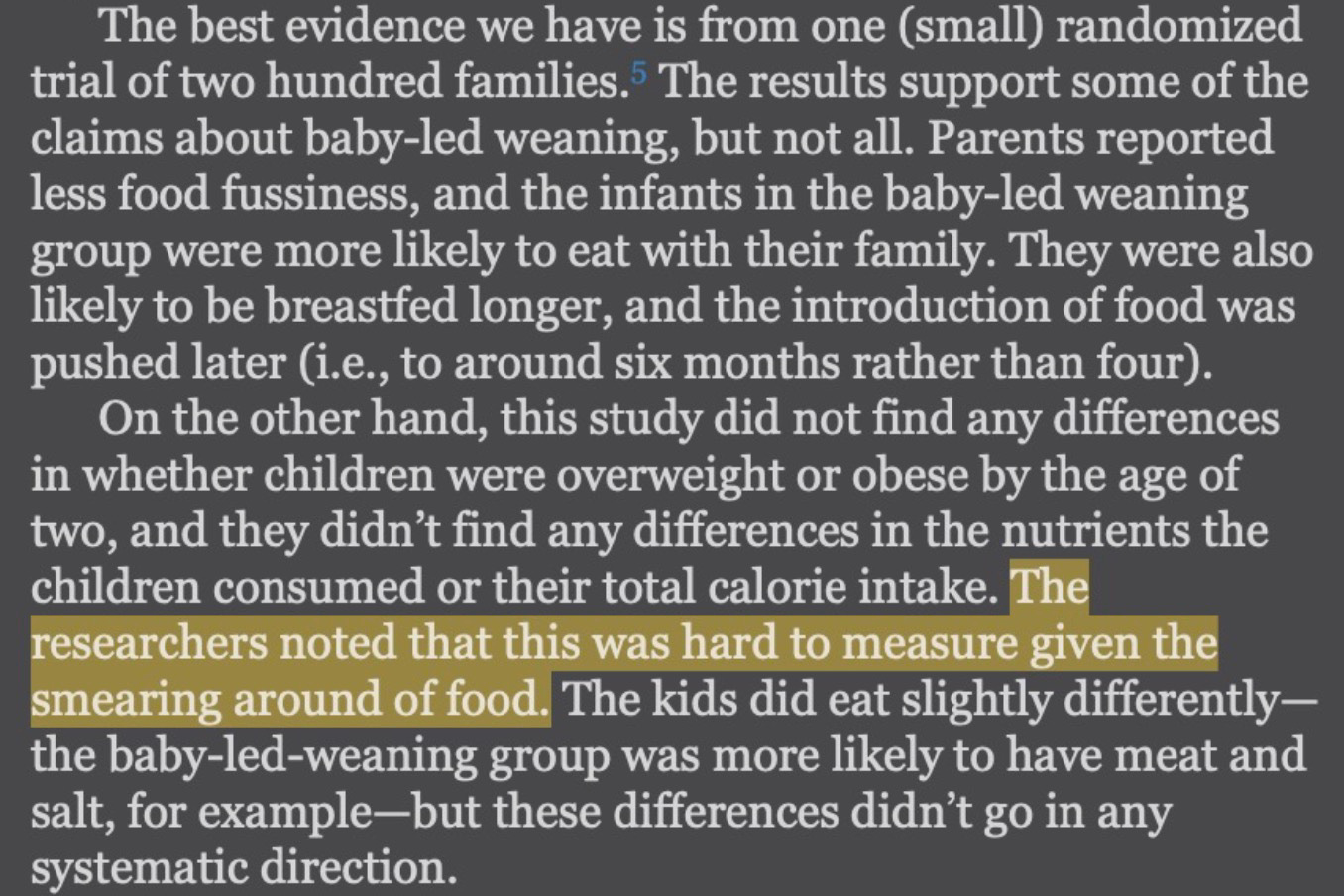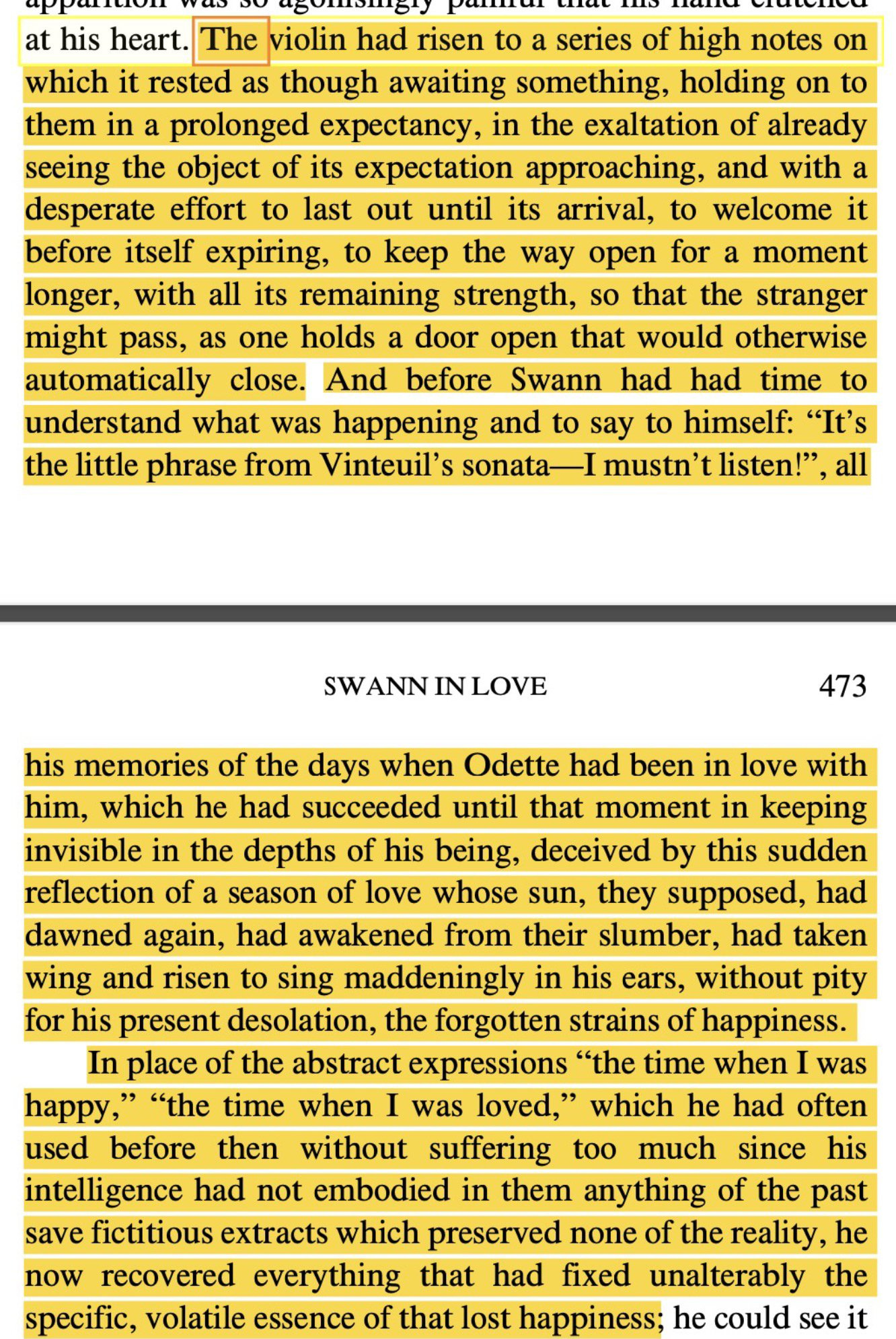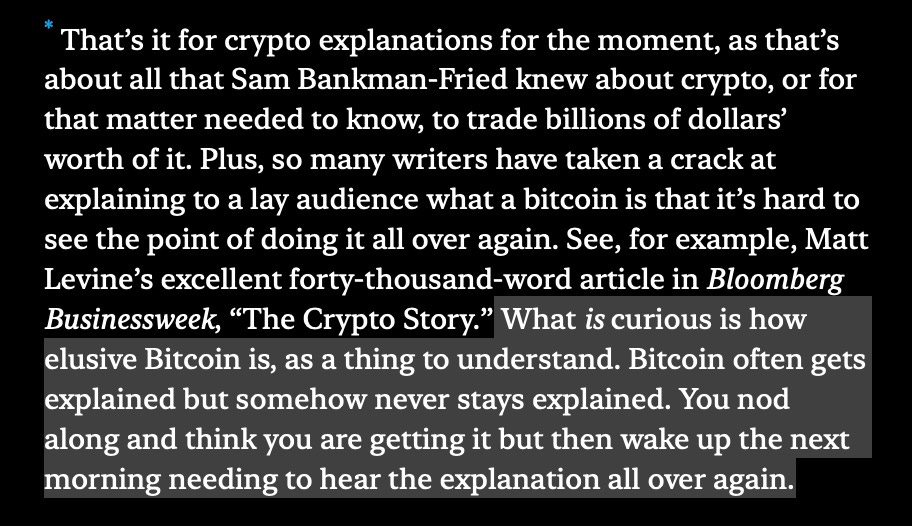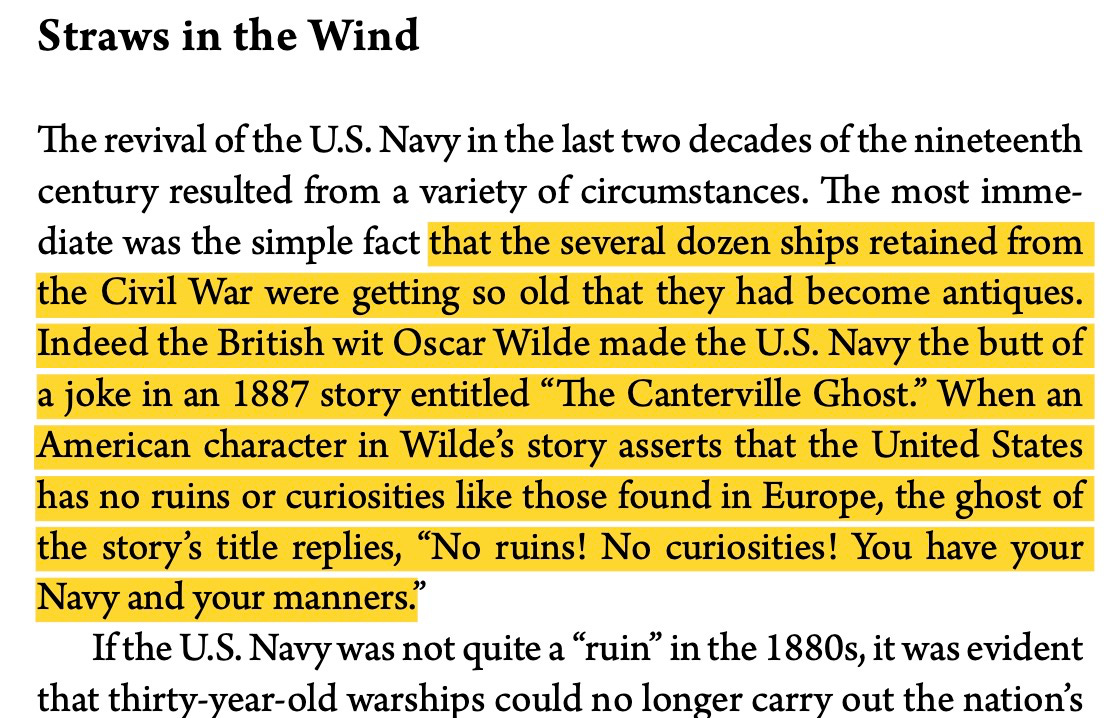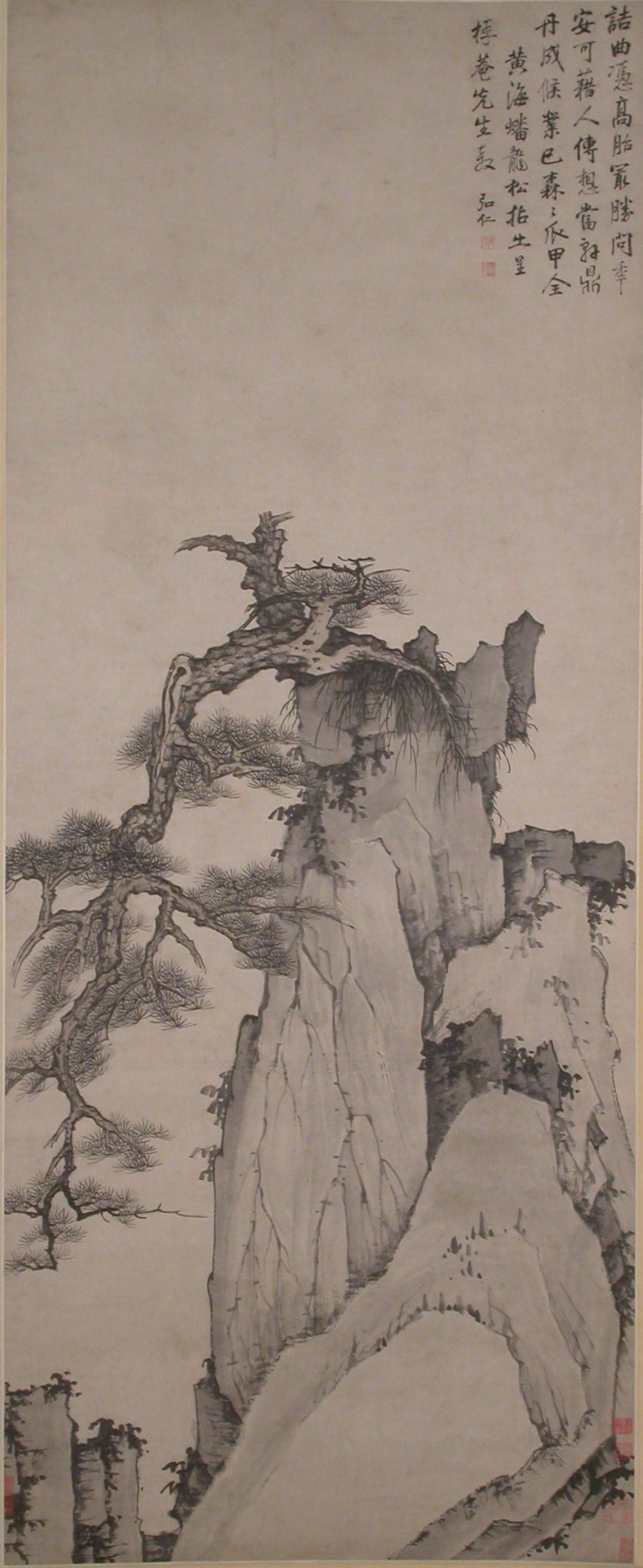I read at least half of everything on this list. Bolds I particularly enjoyed, and bold stars were my favorites. Audible and the Voicedream app that machine-reads PDFs to me when I’m doing practically anything besides working helped me power through a lot of text this year. Going dry also frees up a lot of time.
Thanks to AI, the wars in Ukraine and Israel, and, post-balloon, an overall sleepier year in US-China relations, I trended more toward reading around war and technology than China books.
Grab Bag
The first half of *Team of Rivals, Doris Kearns Goodwin (2011). Revisiting this book after a decade makes me feel as if Lincoln is almost a Shakespeare play where, in different stages of your life, you come to appreciate different aspects of what made him such a remarkable human being and politician.
I loved this little anecdote about how, despite being really rudely treated by Stanton during the Reaper case, he took it in good cheer and just used it as motivation to study harder — not out of malice, but more because his eyes had been opened to what quality really looked like.
And on this, he is so, so right.
*What My Bones Know: A Memoir of Healing from Complex Trauma (2022), Stephanie Foo. Probably the book that had the most impact on me as a person of the year. I’m fortunate enough to have a pretty good relationship with my parents, and reading one memoir of just how difficult it can get for others and how the scars of “white collar” abuse can manifest. It left me a far more empathetic person.
Freaky Deaky, Elmore Leonard (1988).
Why Congress, Philip Wallach (2023). Made me moderately hopeful that Congress could, maybe, have a renaissance before I die. Discussed in this podcast. That said, Gallagher’s bailing pushed my timeline out another decade.
The Conquest of the Incas, John Hemming (1970). Clearly, Covey is surely more accurate and nuanced in what happened to the Incas — but Hemming’s classic was a way more fun read. It gives you as much detail as you can squeeze out of the sources akin to the Midway and Jutland books, but Hemming can really write. It also doubles as a window into the value system of what constituted “honor” and “nobility” from the perspective of a British guy in 1970. However, it is uncomfortably bloodthirsty.
Inca Apocalypse, Alan Covey, 2020.
*G-Man: J. Edgar Hoover and the Making of the American Century, Beverly Gage (2022). Discussed on the podcast here.
The Art of Courtly Love, Andreas Capellanus (1990).
Klara and the Sun, Kazuo Ishiguro (2021).
The Human Tide: How Population Shaped the Modern World, Paul Morland (2019). The guy did a great podcast interview, but the book didn’t add much. Would love a recommendation for a great demographics book.
Bach: Music in the Castle of Heaven, John Eliot Gardiner (2013). Ostensibly the best Bach book — but it didn’t really do it for me. The author is somehow almost too into the material?
Cribsheet: A Data-Driven Guide to Better, More Relaxed Parenting, from Birth to Preschool, Emily Oster (2019). I feel for the poor researchers trying to count how many calories babies consume…
*Swann’s Way, Marcel Proust (1913).
At first glance, many versatile writers appear quite impressive. As you delve into their work, however, and particularly on subjects that you have a deep understanding of, the mystique begins to fade. With Proust, the opposite happens. His breadth of exploration is vast, yet when he delves into a subject that personally resonates with me, I find myself astounded with how precise and clear he can reflect a feeling.
He can write well about anything. Here’s a Twitter thread on passages from just one chapter that left me speechless. One bit here:
Charles Darwin: A Biography, Vol. 1 - Voyaging, Janet Browne (1995).
*Charles Darwin A Biography Vol 2 - The Power of Place, Janet Browne (2002).
The Voyage of the Beagle. He’s an odd duck but very endearing!
‘Civilian’ Technology
Between MITI and the Market: Japanese Industrial Policy for High Technology, Daniel Okimoto (1989). Review thread here.
A Brief History of Artificial Intelligence: What It Is, Where We Are, and Where We Are Going, Michael Wooldridge (2021). Is there any good book about the history of AI research? This has to be a thing worth caring about, right? This one was underwhelming.
Divided Sun: MITI and the Breakdown of Japanese High-Tech Industrial Policy, Scott Callon (1995).
Understanding Semiconductors: A Technical Guide for Non-Technical People, Corey Richard (2022). So you read Chip Wars. Well, if you want to take the next step, this book is a great on-ramp to getting a more technical understanding of what it really takes to make a chip.
*The Rise and Fall of American Growth: The U.S. Standard of Living since the Civil War, Robert Gordon (2016). I stayed away from this book for a long time because all of the discourse around it was about its thesis that growth was gone and not coming back anytime soon. But this argument is the least interesting part of this masterwork! It’s a gripping peer into the pre-industrial world and how much change happened in how people went about their lives over the nineteenth and twentieth centuries. It gives you some frame of reference for how weird the world might get if AI really does end up driving a second industrial revolution. For a taste:
Jade Leung’s PhD thesis on how politics ends up impacting the trajectories of emerging dual use technologies. Discussed here.
Going Infinite: The Rise and Fall of a New Tycoon, Michael Lewis (2023).
I went downtown to watch one day of the SBF trial cross-examination. Arriving at 6:30 a.m., I was greeted by a young cohort of crypto reporters with more interesting clothes and hairstyles than myself. To get into the courtroom itself, you had to have arrived at 2 a.m., so I ended up in an overflow room where a group of seventy-five crowded around an overexposed feed to watch him answer questions he couldn’t.
By the end of it, I felt a bit gross for having come mostly to see a show. It was high drama, but watching someone struggle for their life made me feel as though I was in the audience at the Coliseum.
On the book: say what you want about Michael Lewis getting suckered into SBF’s worldview, but the man can write.
And one more gem for the road:
War
Twentieth-Century Combat
Infantry
All Quiet on the Western Front was a deeply disturbing movie that got me on a “grunt’s eye of infantry warfare” reading kick for a month. 8.3.
Eye-Deep In Hell: Trench Warfare In World War I, John Ellis (1989). Keegan’s “Face of Battle” for WWI. The discourse around war in Taiwan in the US, but particularly within China, is not grappling with the horrifying tragedy that will come with any conflict. Also, based on reporting from the front in Ukraine, in a modern war scenario where neither side can establish air superiority (despite minor tweaks like drones), you end up with soldiers suffering in analogous ways to what Ellis portrays here. 8.4.
World War I Trench Warfare (1): 1914-1916 (Elite), Adam Hook (2002). 6.0.
World War I Trench Warfare (2): 1916-1918, Stephen Bull (2002). 6.0.
Because apparently Ellis’s book wasn’t enough, these two are less lyrical, more matter-of-fact but equally horrifying books which explore how warfare evolved. People’s image of WWI is a stalemate where both sides were trying desperately through tactical and technological innovation to get ahead. Even though on the western front it was American manpower and materiel that ultimately broke the Germans, these books are good illustrations of how quickly creative engineers can iterate when winning a war depends on technological breakthroughs.
*The Social History of the Machine Gun, John Ellis (1986). It’s remarkable how long it took for an innovation — which was really ready for primetime as early as the 1870s — to get embraced by military establishments. The excuses were manifold! Some thought the sellers were cranks (undoubtedly some were…), while others thought that machine guns would undermine the “offensive spirit” of troops. 8.6.
Second World War Infantry Tactics: The European Theatre, Stephen Bull (2012). A dry romp through infantry manuals and tactical doctrine. 4.3.
One Bullet Away: The Making of a Marine Officer, Nathaniel Fick (2006).
With the Old Breed: At Peleliu and Okinawa, E.B. Sledge (1981). Horrific book written with compassion and humanity. Will never feel sorry for myself again.
The Army and Vietnam, Andrew Krepinevich (1986). Being larger and more technologically advanced gives you an enormous amount of wiggle room to pursue a dumb strategy, not adapt, and still not completely screw over your country.
Navy
Before Jutland: The Naval War in Northern European Waters James Goldrick (1984).
The Rules of the Game: Jutland and British Naval Command, Andrew Gordon (1996).
After Jutland: The Naval War in Northern European Waters, James Goldrick (2018).
*Shattered Sword: The Untold Story of the Battle of Midway, Jonathan Parshall and Anthony Tully (2005). Not the most beautifully written, but it won a place in my heart. I love books when the historians show so much of their work that you end up really, really trusting them by the end. Even though Rules of the Game was more profound in its exploration of the deep organizational and cultural drivers of the critical decisions of the battle, I think the drama of Midway gives it the edge for me. A little embarrassing though in some overly broad characterizations of “the Japanese mind.”
Learning War, Trent Hone (2018). All books above discussed here. Favorite excerpts from Learning War here.
The U.S. Navy: A Concise History, Craig Symonds (2015).
I highlight when I read books digitally, and it’s kind of my dream for an AI to take the highlights and notes I take while reading and turn them into full reviews. Here’s Claude 2.1 trying that here … it does a pretty good job maybe not taking big thematic conclusions together but certainly in stringing together the anecdotes I found most interesting.
Here’s the full Oscar Wilde quote:
The Russo-Ukrainian War, Serhii Plokhy (2023).
War, Technology, and Organizational Change
*Information in War: Military Innovation, Battle Networks, and the Future of Artificial Intelligence, Benjamin M. Jensen, Christopher Whyte, Scott Cuomo (2022). Podcast forthcoming.
Mars Adapting: Military Change During War, Frank G. Hoffman (2021).
Flying Camelot: The F-15, the F-16, and the Weaponization of Fighter Pilot Nostalgia, Michael W. Hankins (2021).
Four Battlegrounds: Power in the Age of Artificial Intelligence, Paul Scharre (2023). Podcast here.
The Future of War: A History, Lawrence Freedman (2017).
The Origins of Victory: How Disruptive Military Innovation Determines the Fates of Great Powers, Andrew Krepinevich (2023). The chapter on Admiral Fisher was one of my favorites of the year. Podcast forthcoming.
The Rise and Fall of Great Technologies and Powers, Jeff Ding PhD Dissertation (2021). Discussed here.
War and Strategy
Command: The Politics of Military Operations, Lawrence Freedman (2022). Podcast with Freedman forthcoming. Review thread here.
Changing Course: Sources of Strategic Adjustment, Mike Gallagher, PhD thesis (2015). Discussed here.
*The New Makers of Modern Strategy: From the Ancient World to the Digital Age, Hal Brands (2023) and The Makers of Modern Strategy (1943). Podcast forthcoming.
A History of Fascism, 1914-1945, Stanley G. Payne (1995). A historian of Franco-era Spain tries his hand at a general history. Nondescript, but I’m thankful for it because it led me to the following book…
*Gabriele D’Annunzio: Poet, Seducer, and Preacher of War, Lucy Hughes-Hallett (2013). What a weird and wonderful way to cover a brilliant poet and horrific human being who created the contours of fascism. An author who deserves a full catalog reading. I’d love to have her on the show if anyone would mind making the connection!
*The Economic Weapon: The Rise of Sanctions as a Tool of Modern War, Nicholas Mulder (2022). Discussed in a fantastic two-parter below.
A Kennan for Our Times: Revisiting America’s Greatest 20th Century Diplomat in the 21st Century. Essay collection (2018). Twitter review here.
Middle East
Eighteen Days in October, Uri Kaufman (2023). Weirdly comforting to listen to this after October 7. Review thread here.
Target Tehran: How Israel Is Using Sabotage, Cyberwarfare, Assassination — and Secret Diplomacy — to Stop a Nuclear Iran and Create a New Middle East, Yonah Jeremy Bob and Ilan Evyatar (2023). A dark “first page of history” reporting, with deep Israeli sources. Would have liked it to go deeper on the Netanyahu psychology as well as the Iranian players and their motivations. It just feels as though there was a different path from the messianic way Bibi approached this that could’ve played out better for Israel.
China-adjacent
Armageddon Averted: The Soviet Collapse, 1970-2000, Stephen Kotkin (2003).
My Old Home: A Novel of Exile, Orville Schell (2021). Discussed here.
The Collaborators: Three Stories of Deception and Survival in World War II, Ian Buruma (2023). The Qing princess turned Japanese general deserves an HBO miniseries.
The Consequences of National Humiliation: Anger and Status in World Politics, Joslyn Barnhart (2020). For those thinking about arms-race dynamics and international regulation with respect to AI, the chapter on how Khrushchev decided to escalate as a matter of face is worth reflecting on.
Spies: The Epic Intelligence War Between East and West, Calder Walton (2023). Plenty of interesting tidbits but didn’t quite do it for me as a comprehensive piece. Writing a comprehensive history of intelligence is just really, really hard, and the fact that the author doesn’t speak a million languages to get into archives firsthand felt like it inhibited this book.
Victorious in Defeat: The Life and Times of Chiang Kai-shek, Alexander Pantsov (2023). Weirdly not that compelling … likely just the author’s treatment but also Chiang’s Confucian/Christian button-upped-ness just doesn’t make him as compelling a personality as the twentieth-century revolutionary leaders. I also wished there was more on his time in Taiwan.
Collapse: The Fall of the Soviet Union, Vladislav Zubok (2021). Fascinating to read a deeply sourced and intellectually honest portrayal of this story from an author who is pretty bummed the USSR is no longer around.
Incredible how a small-town supermarket blew Yeltsin’s mind.
I can’t imagine how incredible the flowering of Chinese culture would be in a moment like this.
Soviet Policy Towards South Africa, Kurt Campbell (1986). Discussed here.
RobertCaroGPT
This year I’ve been rereading The Power Broker, and am now about 400 pages in. I’m not getting new blazing realizations about the nature of power this go-around, but what really settles in are Caro’s prose and ability to set scenes. One selection below, more in a Twitter thread here.
What will it take for an AI to write a Robert Caro book, for us to be able to read this quality of biography about any person on demand?
Drawing insights from reams of archival sources seems to be a straightforward exercise, not necessarily within the power of GPT4 but on the horizon as context windows expand and the thirst for non-AI-generated content leads to more investment in digitization of archives. But part of the magic of the Moses and LBJ books was that he was writing about recent history and was able to do interviews with players in the room where it happened. He built trust over months and years going back to the same.
I don’t think we’re that far off from an agent being able to synthesize more information and actually ask better questions than a human, but the limiting factor will probably be sources willing to trust that an AI will treat them fairly in the final portrayal of a story. While it seems farfetched that an AI can sweet-talk sources as well as a Robert Caro or Bob Woodward, I can also see a well-tuned AI being better at this skill 99% of reporters. AIs will be able to tailor their approach to different personalities more widely than humans and also will have the advantage of far more working memory to make connections and ask questions that would not have occurred even to the best researchers.
An AI-Caro would have the ability to scale research much more effectively. The Caro documentary showed him making new discoveries in the LBJ Presidential Archives at UT. Caro will die having never truly “turned every page” — a problem that an AI would not have. Further, for all the thousands of people Caro has interviewed, an AI agent could simultaneously interview tens of thousands of relevant people. While this may seem like overkill, it also opens up new possibilities for what a book can be. Caro famously had to cut hundreds of thousands of words from The Power Broker because it wouldn’t fit in the bindings. Why couldn’t an AI-Caro create personalized versions of biographies for each reader? If I want more coverage of Al Smith or the FDR-Robert Moses relationship, AI-Caro could spin up more chapters for me on the spot.
The drafting piece is really not that far off. The following was from the simple prompt of “a scene from a Robert Caro biography of Barack Obama” in GPT-4.
And one more dragon for the road! A “Dragon pine” from the brilliant early Qing painter 弘仁 Hong Ren.






